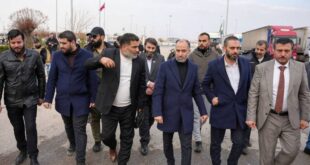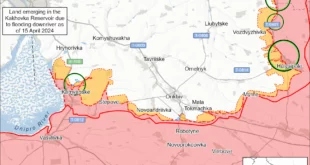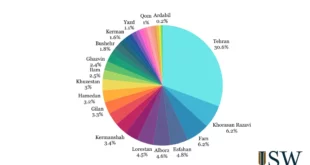The long-standing mayor of Struga is the first politician from North Macedonia’s ruling alliance to be put on a US black list of people linked to corruption – although his concrete wrongdoings remain unclear.
Merko was designated uneligable to enter the United States, “due to his involvement in significant corruption”, the State Department wrote in a press release on Tuesday.
This excited the political life in North Macedonia, provoked a slew of reactions and comments on social networks and by opposition politicians, but not from the official state authorities who remain largely silent.
Although Merko, who runs his fourth mandate as mayor of Struga and who is a prominent member of the junior ruling Democratic Union for Integration, DUI, party, is often present in the public in relation to corruption allegations, controversial statements and moves, thus far it remains a mystery, what exactly earned him the place on the US black list of sanctioned politicians.
“While serving as Struga’s mayor, Ramiz Merko misappropriated funds and interfered with judicial and other public processes, damaging the public’s faith in North Macedonia’s democratic institutions and officials,” the US State Department explained shortly in a press release on Tuesday.
For now, there has been no official reaction from North Macedonia’s Prosecutor’s office, the State Commission for the Prevention of Corruption or other state authorities as to the exact reason.
Social Democratic Prime Minister Dimitar Kovacevski said on Wednesday that the allegations against Merko are serious, and that the move showed the US is dedicated to helping the country fight corruption and improve its judiciary. He criticized the domestic judicial system for failing to act before.
“We are talking about several bases [for allegations] that our investigative and judicial institutions should examine. At the same time, they should ask themselves, how come the US came to this information … and our institutions did not over all these years?” Kovacevski asked.
An additional answer that the US State Department’s Coordinator on Global Anti-Corruption, Richard Nephew, gave to the Albanian office of Voice of America on Tuesday, did not shed much more light.
Nephew said the US had “credible information” that Merko was involved in major corruption, but he could not disclose specific evidence due to the nature of the case.
Merko was mayor of the lakeside Municipality of Struga from 2005 to 2014 and an MP from 2014 to 2016 as part of the then parliamentary majority supporting the VMRO DPMNE-led government.
In 2017 he won a third mayoral mandate in Struga but, he was later that year appointed a minister without portfolio in the first government of former Social Democratic PM Zoran Zaev.
In the 2021 local elections, he was again elected Mayor of Struga and is currently serving his fourth term in office. He is head of Struga’s branch of the ethnic Albanian Democratic Union for Integration, DUI.
In April last year, the US Department of Finance published a list of sanctioned persons and entities from the Western Balkans. From North Macedonia, the list included former Prime Minister Nikola Gruevski and the ex-head of the notorious secret police, UBK, Sasho Mijalkov, banning them and their family members from entry into the United States.
Gruevski’s company, registered in Hungary, where he has enjoyed political asylum since 2018, was also placed on the list of sanctions.
Merko is not only the first politician from the current parties in power in North Macedonia to be incuded in the US black list.
No corruption charges, only pre-investigation
From what is publicly known, there are no current corruption proceedings in force against Merko.
Before the end of his second mayoral term, in 2013, he was charged by the prosecution for allowing a construction of an illegal build near the shores of Lake Ohrid. The charges were withdrawn under mysterious circumstances in 2016 with an assessment by the same prosecution that they had been baseless.
But more recently, the Prosecutor’s Office for Organized Crime and Corruption, acting on the demand of the state Anti-Corruption Commission, in 2019 has opened a pre-investigation procedure, suspecting Merko of abuse of office over the purchase of four municipal vehicles in 2018, including his official transport, an Audi A6.
The total value of the vehicles was put at 114,000 euros, and the Audi alone cost 66,000 euros. At the time of the procurement, the municipality was 4 million euros in debt, an outstanding amount for such a small municipality.
For now, there is no outcome to this procedure, but his response from 2019 when the procedure was launched has stuck. Merko then said that he regretted not buying an even more expensive car for himself, as that would only be proper for a mayor.
This was not his first controversial statement. Merko often makes provocative claims. On several occasions he said that, if it was up to him, he would have solved the problem of stray dogs in the municipality by killing them “like lambs get killed”.
On another occasion, addressing the problem of beggars in the small tourist town, he insisted that they all came from other places, and, if it was up to him, he would have “deported” them.
In 2019 when UNESCO threatened that it could downgrade the status of the Ohrid Lake region from a protected heritage site to an endangered site, assessing that the many illegal builds there are a big part of the problem, Merko famously insisted that in his municipality, which is part of the region, there are no illegal builds.
Portrayed as a local sheriff
More accusations of possible wrongdoings come from the ranks of the opposition, which has accused Merko of acting in Struga like an untouchable local sheriff, always counting on the support of his DUI party, which has spent most of the last two decades as a junior partner in various governments.
In October 2021, the then opposition Alliance for Albanians accused him of funneling large sums of money planned for street lamps to accounts associated with him and one of his business associates.
The party said that soon after the central government paid off half of the municipality’s debt, some 2 million euros, he payed 1.2 million euros to the Struga-based company City Light and in turn the company allegedly transferred the bulk of the money to accounts close to the two men.
This was “extortion and theft of millions of euros from the budget of the citizens of Struga […] and it has been going on for several years through a dubious concession with many legal violations”, Idriz Istrefi, from the Alliance for Albanians, told a press conference.
Although Merko denied the allegations, the Alliance insisted it had evidence in the form of bank transactions which it said it had shared with the prosecution and the financial police.
The suspicion today is that this alleged evidence may have been sent to the US embassy as well.
In relation to this case, a court in Struga ruled that the municipality should pay a significant sum to City Light company for alleged damages, in a session held in 2021 during the COVID-19 pandemic, when courts usually did not work. The Alliance claimed that this was done under pressure from Merko. He has also denied this.
Merko is also known in Struga for his connections to the International University of Struga, a private college which the opposition, including the Alliance for Albanians, as well as some educational inspectors, has accused of issuing fake diplomas. Merko’s son, Genc, is the owner of Euro Collage Struga, the company that in turn owns the International University of Struga.
From the publicly available data, no criminal procedure has been raised in relation to this and Merko has rebuffed the claims as false.
BIRN contacted Merko’s office for comment but did not get a reply by the time of publication. The DUI said it will respond with a press release at a later stage.
Meanwhile, the US embassy in Skopje said that the black list of corrupt officials might include other names in future.
 Eurasia Press & News
Eurasia Press & News




